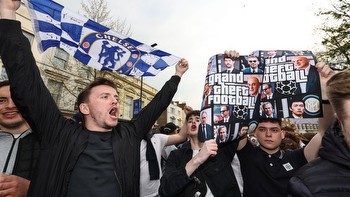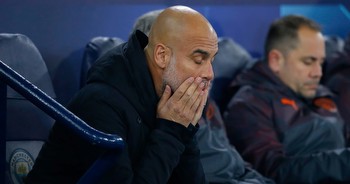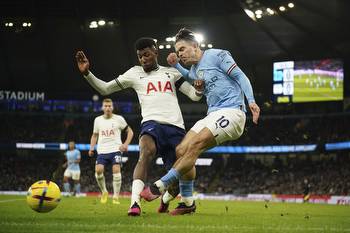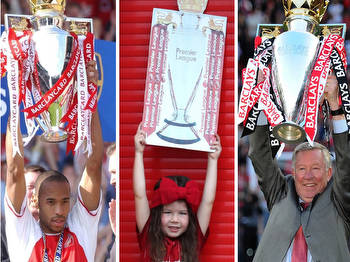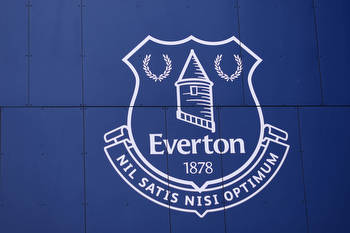Manchester City financial allegations: What other clubs might try to do about it

The Premier League has charged Manchester City with of financial rules.
An independent commission, convened by England’s top flight, will decide whether any punishment is warranted and City’s domestic rivals will be paying close attention.
Stephen Taylor Heath, head of sports law at JMW Solicitors, spoke to The Athletic about what legal action — if any — domestic clubs could take against City if the commission upholds any of the 105 charges.
Remind us what happened on Monday…
City were referred to an independent commission over alleged breaches of a series of financial rules between the 2009-10 and 2017-18 seasons.
City are accused by the Premier League, as detailed on the Premier League website, of not providing accurate financial information and not fully disclosing managerial remuneration for a four-year period. These charges relate to the 2009-10 to 2012-13 seasons when Roberto Mancini was in charge.
They are also accused of breaching Premier League rules on profit and sustainability in 2015-16, 2016-17 and 2017-18.
The Premier League has additionally alleged that City did not comply with UEFA’s regulations around club licensing and financial fair play in 2013-14 and between 2014-15 and 2017-18.
City responded with a statement which read: “Manchester City FC is surprised by the issuing of these alleged breaches of the Premier League rules, particularly given the extensive engagement and vast amount of detailed materials that the EPL has been provided with.
“The club welcomes the review of this matter by an independent commission, to impartially consider the comprehensive body of irrefutable evidence that exists in support of its position.
“As such, we look forward to this matter being put to rest once and for all.”
What happens now?
Murray Rosen KC, a barrister at 4 New Square Chambers, chairs the Premier League’s independent judicial panel. He will likely select a three-person panel, of which one of the members will have to be a financial expert.
The Premier League’s rulebook states proceedings before an independent commission will be confidential and heard in private. In other words, we will not know anything about it.
Once the process is over, the commission’s verdict will be published on the Premier League’s website.
What happens if Manchester City are found guilty?
City would have the right to appeal against the panel’s verdict. A separate panel would then convene to review any possible appeal.
The potential punishments open to the commission range from a reprimand and fines to points deductions, with the most extreme penalty being expulsion from the division.
Any points deduction could be applied when the decision is made or retrospectively, raising the prospect of City being stripped of titles.
Why will other clubs be paying close attention to the verdict?
If Manchester City are found to have breached all the rules the Premier League has accused them of breaking, then their domestic rivals — especially ones who finished second to them or missed out on the Champions League — are going to be furious.
“You are going to have a lot of sabre-rattling from club chairmen,” Taylor Heath said. “There are a lot of powerful figures in the ownership of Premier League football clubs now and you do not know what pressure has been brought on the Premier League to get to this point.
“The Premier League clubs will be looking very carefully at what the Premier League does, but so long as that commission is properly convened and it is an independent commission and not just an extension of the Premier League, then that is the dispute resolution process that everybody who plays in the Premier League has signed up to.”
Could they take individual legal action against City?
In short, yes. But as ever, it is far more nuanced than that.
“The Premier League is a collective of clubs and because you are a member, you agree to abide by the rules and regulations,” Taylor Heath said.
“The first thing that could happen would be an aggrieved club might seek to take action against the Premier League if they think the Premier League have not imposed a sufficient enough sanction.
“But what the Premier League would immediately say is, ‘We haven’t imposed any sanctions, it is an independent commission that has imposed a sanction’.
“You would have to demonstrate why you have a right of action against Manchester City as a club-on-club action, rather than simply abiding by the decision of the commission that you as a club agreed to by signing up to abide by the Premier League’s rules and regulations.”
If a club were to bring legal action against City, Taylor Heath believes the reigning Premier League champions would argue that they do not have the right to do that because it is at odds with the rules and regulations, including the dispute resolution process they signed up to.
Taylor Heath also noted how, if found guilty, the sanctions imposed on City by the commission are unlikely to be to compensate the other clubs or give them an appropriate remedy.
What would they seek to gain from suing City?
Any potential recourse would almost certainly involve them arguing they lost millions of pounds in prize money, sponsorship deals and bonuses.
Liverpool, for example, could argue that — if the charges are upheld — City’s breach of the financial rules was a factor in them losing out on the Premier League title by a solitary point in the 2018-19 season.
Equally, however, Jose Mourinho and Manchester United may want to argue financial rules being broken was why they ended up 19 points behind City in second at the end of the 2017-18 campaign.
“That would be the starting point for trying to quantify what you would say your loss is, but where do you start and finish?” Taylor Heath said. “It is likely to boil down to money.
“If you say, ‘I finished fifth and I would have qualified for the Champions League’, then, of course you could say, ‘Well, if I qualified for the Champions League I would have won more money and would have been able to buy better players the next year’. It’s exponential with regard to the hypothetical.
“You would have to show what the impact of these offences, if proven, have had on your league positions, then you would have to quantify what that represents in commercial terms.
“You could be talking about bonuses and league position bonuses, but the big game-changer is qualifying for the Champions League.”
When was the last time two Premier League clubs were involved in a legal dispute?
You have to go back to 2007. West Ham were fined by the Premier League for breaking rules on third-party player ownership concerning Carlos Tevez.
Sheffield United were relegated at the end of the 2006-07 season and argued that Tevez’s goals kept West Ham up. They were awarded £20million, with their legal claim taking broadcast revenues, sponsorship, merchandising and ticket sales into account.
“The cornerstone of the Sheffield United-West Ham case was that West Ham received a fine but didn’t receive a points deduction,” Taylor Heath said. “Initially, Sheffield United wanted to take the Premier League to arbitration over that, but they failed.”
Taylor Heath added: “The court appeared to accept that Tevez was the deciding factor in West Ham staying up and finishing above Sheffield United, but they were not reinstated back into the Premier League.”
What about players and managers from other teams? Could they sue City?
In theory, yes.
Would they be successful? Who knows!
Mourinho may want to argue he wouldn’t have been sacked by Manchester United had they won the league during his tenure and that because his reputation took a hit following the dismissal, he was overlooked for other jobs and sponsorship deals.
A United player missing out on Champions League qualification by goal difference at the end of the 2015-16 season, therefore having their wages docked, could claim they want to be compensated for the salary they had to forfeit due to City finishing ahead of them.

